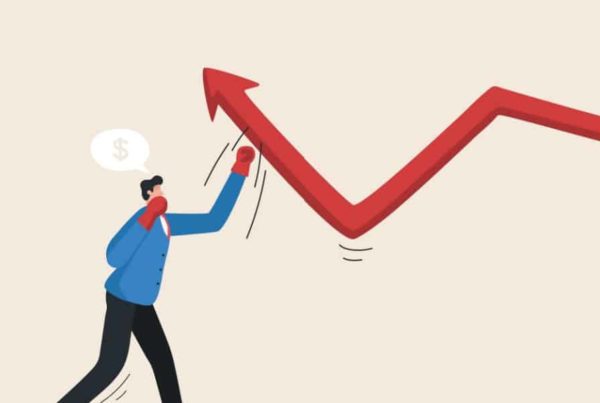
Here we investigate 12 tactics that you can methodically focus on over the next 12 months that will help you make positive change and progress. Take a little bit at a time and you’ll be amazed at what you accomplish during your journey.
12 Ways To Improve Your Performance This Year
Stop tweeting and start reading.
Studies of great leaders reveal several commonalities amongst them. Tweeting is not one of them.
While it’s an important component of social media and brand exposure, it’s not a big factor in the leader’s success.
Reading is. During a recent Jeopardy episode, the host (Ken Jennings) asked his participants to reveal something about success or themselves.
Each person said that their parents highly encouraged each one of them to read.
Jennings replied by saying that their response is the MOST common reply he gets to that question. Plain and simple, leaders are readers.
By not listening, you’re telling the other person that they don’t matter.
If there’s one skill that you should amplify, it’s listening.
Listening triggers emotional connections, as well as helps you truly gather information.
Listening makes people feel important.
And if they feel important, they remember the interaction with you. Think about a time when you were talking with someone, and you felt like they weren’t listening.
How’d it feel? Did you want to continue the conversation?
Complacency is the enemy of excellence.
A client of ours called me one day with a problem. They just lost a long-term customer to a competitor, and they were rather distraught as this customer accounted for a significant amount of revenue for his company.
He told me that the news of this hit him “like a ton of bricks”. He couldn’t believe it.
As we chatted, I asked him how often he called this customer, how often they met, and generally how often he was connecting with them. He said that the account had been basically on “auto-pilot”.
This was his problem— he had become complacent and was taking their business for granted. Any time someone feels like you are taking them for granted, bad things happen. In this case, he lost the account.
The remedy is to always be “on edge” with an account. Treat EVERY account as if they are first time customers. If you do, you won’t lose accounts.
See the change. Seal the change.
Change is difficult but often a necessary thing. Change doesn’t just happen, though.
Too often, leaders outline the changes the organization needs to go through— and the changes never happen.
The reason is that the people in the organization can’t visualize the change.
The best leaders know this. They “paint a picture” of what the results of the change will look like.
They get people to “see” it. Once people “see” it, the leader is able to “seal” the change in their minds.
By doing so, the leader increases the probability that the change will actually occur.
When you are trying to get people to do something, use nouns not verbs.
Gregory Walton of Stanford once did a study on voting. In one sentence, he asked people, “How important is it to be a voter in tomorrow’s election?”
Using a second sentence, he asked other people, “How important is it for you to vote in tomorrow’s election?”
The first sentences emphasizes the noun “voter” while the second sentence emphasizes the verb “to vote”.
When the noun was stressed, 11% more people voted.
The reason is that the noun leverages a person’s need to belong to a group. This need supersedes the action of the verb.
Procrastinate strategically to test all possibilities for greater outcomes.
Procrastination can be a hinderance to productivity, but a resource for creativity because it opens up possibilities.
This is due to “divergent” thinking. Here’s how it works.
The more you delay doing something, the more your brain thinks about different possibilities or different paths to the resolution. And when the brain does this, you “create” more options and open up potentially better ways of doing things.
So, when you are trying to be creative, it’s sometimes ok to procrastinate.
When you’re trying to prospecting calls, it’s not such a good thing to procrastinate.
When something is interrupted or left undone, it remains active in our mind.
In short, don’t finish things so quickly. Sometimes it’s better to stop and let a thought marinate for a while.
Your brain will keep it active, and you’ll be thinking about how to make whatever you’re thinking about better.
If you finish it too quickly, you may be missing important considerations.
Foreshadowing failure increases your probabilities of success.
Keep this phrase in your head when working on anything: “What’s going to happen if you don’t do something?”
By doing so, you’ll force yourself to think of options.
You’ll make plans to pivot if things don’t go exactly the way you thought they would go. You’ll develop contingency plans. You’ll poke holes in the plan.
You’re able to accomplish this by thinking about what failure looks like and then figuring out how to minimize the failure.
You’re only as good as your last pitch.
You’re only as good as your last telephone call. You’re only as good as your last meeting.
You’re only as good as your last proposal. You’re only as good as your last speech.
You’re only as good as your last email. You’re only as good as your last PowerPoint.
You get the idea. Always stay on edge.
Focus on the power of “3”.
We often overwhelm ourselves with putting too many things on our to-do list.
We see the list and think that there’s no way we’ll get all of it done and that causes us to become paralyzed. Instead, focus on three core items each time.
Knock ’em out and then develop another three. You’ll feel more accomplished, and your brain prefers this simplicity.
Interdependent vs. Independent for maximum productivity?
Studies abound regarding how to get people to work smarter and produce more.
Leaders are constantly looking for the next “productivity hack”.
Take a cue from ants in order to increase your team’s performance. Scientists studied ants and discovered that they become 3x faster when other ants are around.
The other ants don’t necessarily need to be working together. They became productive when placed in a social setting.
This is called Social Facilitation and in short, it means that an individual’s performance increases while being in the presence of others.
Constantly seek opportunities to put people around other people for maximum performance. It’s not easy, especially when working in a blended environment, but it’s important.
Balance matters.
When an individual’s mental fatigue kicks in, that person can’t resist emotional triggers. Think about a sales situation. If a person is exhausted, they may be more apt to cave in a negotiation because they are simply tired.
They don’t have the mental fortitude to overcome the emotional aspect of sales negotiation, so they give in.
Keeping fresh and maintaining balance allows them to overcome the invariable emotional aspects of any job— putting the person in a better position to succeed as a result.
Slow And Steady
For the most part, small, incremental, and intentional movements work better than trying massive quick changes.
Think of the tortoise and hare fable. In the end, slow and steady won the day.
Take a small bite each month and before you know it, you’ll see positive change and perform at a higher level.
Most people desire to accomplish great things in their lives. Most people desire to be successful. Yet, few people take time to develop and write down intelligent thoughtful goals. In the Sales Gravy University course, Essentials of Setting Winning Goals, you’ll learn exactly how to build a goal plan and create a path on which you will thrive and grow.




